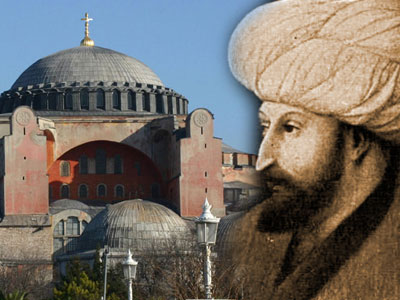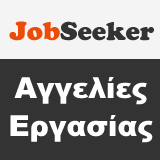 H Κωνσταντινούπολη αποσκοπεί να επισκιάσει το Ντουμπάι, σχηματίζοντας ένα Διεθνές Οικονομικό Κέντρο , τύπου Wall Street για την Θάλασσα του Μαρμαρά: η Istanbul International Financial Center
H Κωνσταντινούπολη αποσκοπεί να επισκιάσει το Ντουμπάι, σχηματίζοντας ένα Διεθνές Οικονομικό Κέντρο , τύπου Wall Street για την Θάλασσα του Μαρμαρά: η Istanbul International Financial Center
Istanbul Aims to Outshine Dubai With $2.6 Billion Bank Center
By Mark Bentley and Benjamin Harvey
t’s now little more than a dusty patch of land in the modern suburb of Atasehir on the Asian side of Istanbul.
Within three years, if all goes according to plan, high-rise office buildings will dominate the site, forming an upstart Wall Street on the Sea of Marmara: the Istanbul International Financial Center.
Like a lot of Prime Minister Recep Tayyip Erdogan’s ideas, such as his push for mostly Muslim Turkey to start formal membership talks with the European Union, the square-mile International Financial Center is bold, Bloomberg Markets magazine reports in its October issue.
Erdogan, whose Justice and Development Party won re- election last year, envisions Turkey as a burgeoning economic as well as political power in the Middle East and southeast Europe.
IFC-Istanbul, as it is known, would be the steel, glass and concrete embodiment of Erdogan’s vision, says Kubilay Cinemre, who stepped down as chief executive officer of Merrill Lynch & Co.’s Istanbul office in 2010 to establish his own fund management company, Fokus Yatirim Holding AS.
With the IFC up and running, Environment and Urbanization Minister Erdogan Bayraktar told reporters earlier this year, “Istanbul will assume its historical role as a global center of commerce.”
By some measures, Istanbul, straddling Europe and Asia, with 13 million people, is on its way there already. The financial industry has grown along with the world’s 16th-largest economy.
Envy of Neighbors
Mizuho Financial Group Inc. (8411) and Mitsubishi Corp. (8058)of Japan, OAO Sberbank of Russia (SBER) and Kuwait’sBurgan Bank SAK (BURG) bought Turkish firms or opened offices in the city this year, joining such powerhouses as Citigroup Inc. (C) and HSBC Holdings Plc. (HSBA)
With a gross domestic product of $770 billion, the Turkish economy expanded by 8.5 percent last year, third-fastest among the Group of 20 industrialized nations, after China and Argentina, according to data compiled by Bloomberg.
It has cooled a bit, growing at an annualized rate of 3.2 percent in the first quarter of 2012 — a pace that would be the envy of neighbors to the west.
Today, the heart of Turkey’s financial industry is in Istanbul’s Levent and Maslak districts, on a hill overlooking the Bosporus from the city’s European side. The assets of all banks licensed in Turkey grew six-fold to 1.27 trillion liras ($710 billion) from 2002 to 2012, according to Turkey’sBanking Regulation and Supervision Agency.
Strong Banks
The country’s relatively strong banks have shielded it from some of the economic instability plaguing Europe. In June, according to the banking agency, Turkish banks had on average a capital-to-risk-assets ratio of 17 percent, more than double the legally required 8 percent.
The Istanbul Stock Exchange’s main ISE National 100 Index (XU100), just a quarter-century old, has become one of the top emerging- markets exchanges in the world.
Valued at 120 billion liras as of Sept. 14, the Istanbul bourse, while tiny compared with the New York and London stock exchanges, is slightly bigger than Frankfurt’s ($51 billion), larger than the stock markets of Greece and Egypt combined and nearly four times the size of Dubai’s.
It expanded 26 percent this year and has more than doubled in size since the start of 2009.
Foreign direct investment is also on the rise: During the first two months of 2012, it was 25 percent higher than during the same period a year earlier.
Transforming Istanbul
In March, Aeroports de Paris bought a controlling 38 percent stake in Turkish airport operatorTAV Havalimanlari Holding AS (TAVHL) for $874 million. TAV runs Istanbul’s main Ataturk International Airport, the world’s 30th busiest, as well as terminals in Latvia, Macedonia, Tunisia and Saudi Arabia.
In April, Goldman Sachs Group Inc. (GS) agreed to pay $240 million for a 13 percent stake inAksa Enerji Uretim AS (AKSEN), Turkey’s biggest nongovernment power producer.
The prosperity that comes with that kind of growth is transforming Istanbul. New construction — apartment blocks, villas, hotels — is evident across the city, along with upscale kebab joints, restaurants and bars.
Chief executives and other senior managers gravitate toward the Billionaire Club, a showy multilevel nightclub in the Edition Hotel that melds Ottoman-style decor with chandeliers and disco blue lighting.
Party Island
Junior executives hang out at Suada Club, a man-made party island in the middle of the Bosporus with an Olympic-size pool, several bars and restaurants. A planned third bridge across the busy Bosporus will likely bring new development to a large forested plot in north Istanbul.
The IFC is an instrument in Erdogan’s campaign to exploit political and trade links, some dating from the Ottoman Empire, across the Balkans, the Persian Gulf states and North Africa.
Istanbul’s potential is not as well-known as it should be, Martin Spurling, chief executive ofHSBC Bank in Turkey, said at a finance conference on June 13 in Istanbul.
“I had no idea how big Istanbul was until I was appointed here,” he said. “I was shocked. In terms of its location, history, culture, human potential and hospitality, Istanbul’s a great candidate to be an international finance center. We have to explain it to the world a little better.”
In the past, Erdogan has devised several grandiose projects that have stalled. A highway between Istanbul and Turkey’s third-biggest city of Izmir is still incomplete.
‘Missing the Point’
Erdogan’s plan for the $30 billion Istanbul Canal remains on the drawing board more than 18 months after he announced it. Similar hitches have hit the government’s sales of state-owned gas pipelines and operating rights for toll roads.
Some critics of the IFC say it’s more style than substance.
“The reason we’re not a financial center now is ultimately an overall competitiveness problem, and to have this ‘image’ of being a financial center as a goal in itself may be missing the point,” says Murat Ucer, formerly associated with the Turkish central bank, who is an adviser in Istanbul for GlobalSource Partners, a New York-based economic consulting firm.
“I wish they would focus more on how to raise Turkey’s overall competitiveness and institutional rankings,” he says. “The education system can be improved. We have to do more to make Istanbul a more liveable city. We can improve the tax system. We have a long way to go on these things.”
The IFC may well be a success, Ucer says.
“It is not an incredibly impossible goal,” he says. “But we need to be more realistic about it. There’s a lot more to it than building pretty buildings.”
Influential Critics
In almost a decade as prime minister, Erdogan, a follower of Sunni Islam, hasn’t always enjoyed the full support of Turkish secular business leaders, says Bulent Aliriza, head of the Turkish program at the Center for Strategic and International Studies in Washington.
By overseeing steady economic growth, Erdogan has started winning over influential critics such as Rahmi Koc, honorary chairman of Koc Holding AS (KCHOL), a group of companies whose sales account for more than 6 percent of Turkey’s GDP.
Three years after Erdogan announced his plans for the IFC, Turkey’s political and business leaders are lined up behind the $2.6 billion project, which the government says will employ 50,000 people and provide a new home for the Istanbul Stock Exchange.
Join the March
Turkiye Halk Bankasi AS (HALKB) and Turkiye Vakiflar Bankasi TAO (VAKBN), both government banks, have purchased land on the site, and other public financial institutions have said they will join the march to Atasehir: the Banking Regulation and Supervision Agency, the Capital Markets Board and the Banks Association of Turkey.
Haci Omer Sabanci Holding AS (SAHOL), Turkey’s second-biggest industrial and financial group, is among the companies backing the plan and is organizing conferences and roadshows to promote it.
Citigroup, UBS AG, the Institute of International Finance Inc. and The CityUK, which represents the U.K. financial services industry, are advising the Turkish government on the project.
In seeking to become a regional financial hub, Turkey is also changing the nature of its relationship with the European Union it’s yearned to be a member of. Formal negotiations on membership, which Ankara applied for in 1987, began in 2005 and are continuing.
Even as opposition to Turkey’s membership has grown in recent years in EU member states, particularly France, the Turks’ own EU ardor has cooled as their economy improved.
Euro Crisis
Erdogan has more than halved public debt, to less than 40 percent of GDP. From May through July, the Turkish lira was more stable than any European currency.
Whereas eastern Europe has been shaken by the euro crisis erupting to the west, Turkey has been largely insulated because of access to other markets, according to the Turkish Treasury.
The success or failure of IFC-Istanbul will inevitably be seen as a measure of Erdogan’s leadership.
“Erdogan thinks big and a lot of people who voted for him like that,” Bulent Aliriza says. “The question is whether all his ambitious projects will materialize. Erdogan was born in Istanbul, grew up in Istanbul. He was mayor and he’s a very Istanbul-centric person. The financial center shows how much he’s committed.”
The IFC will also speak to Turkey’s assertiveness as a regional power.
“All we have to do now is bring this potential into the open, and if there are any obstacles, remove them,” Deputy Prime Minister Ali Babacan told reporters at an IFC planning session in June.
Much of that task falls to a prime minister who as a teenager sold cold drinks and sesame buns on Istanbul’s streets and is not easily daunted.
To contact the reporters on this story:
Mark Bentley in Istanbul at mbentley3@bloomberg.net;
Benjamin Harvey in Istanbul at Bharvey11@bloomberg.net
-πηγή:Bloomberg Markets Magazine









